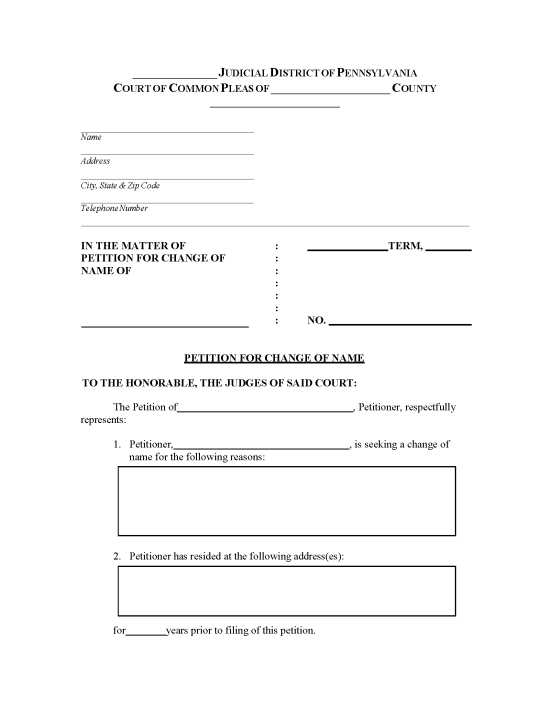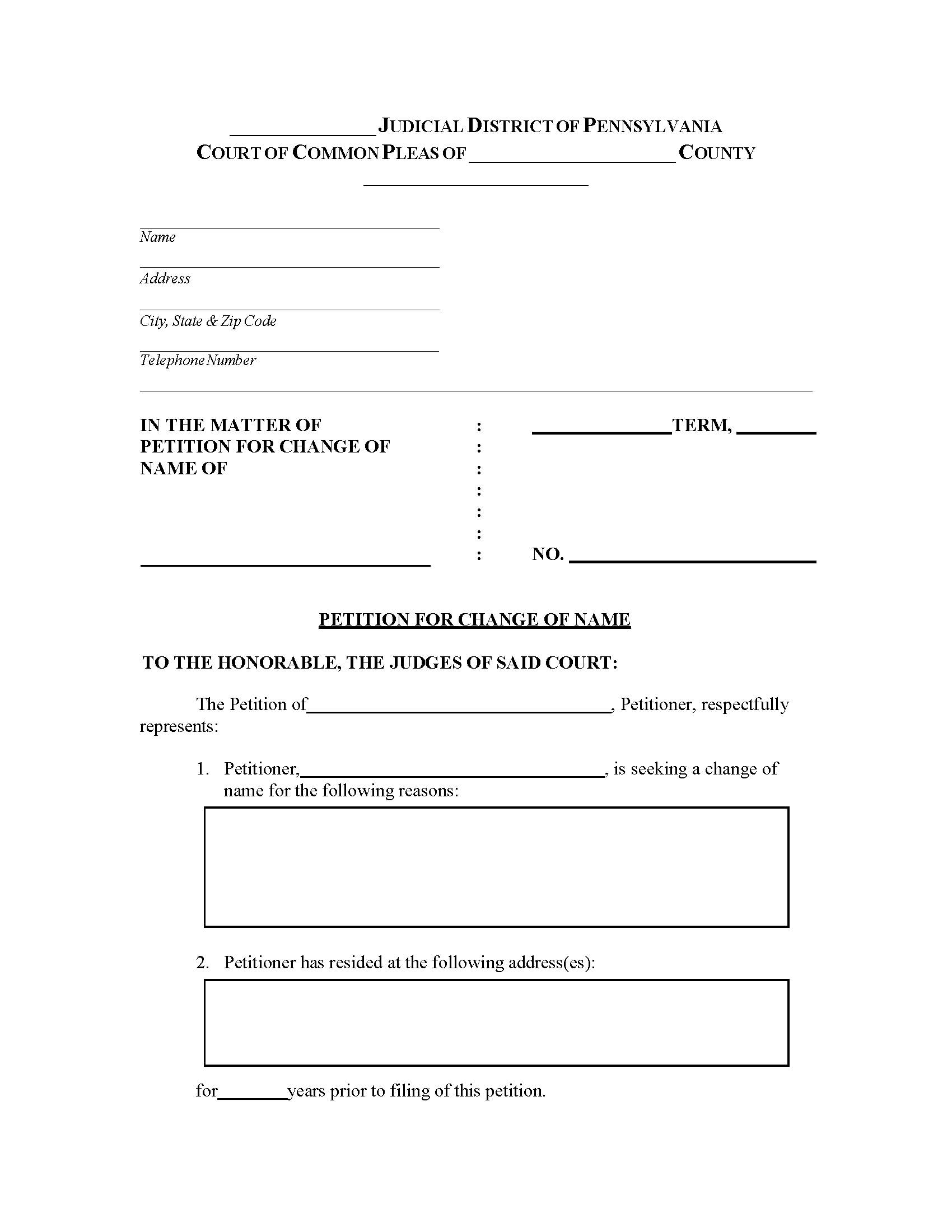Eligibility Requirements
- Must be at least 18 years old
- Must reside in the county of filing
- Must not be convicted of a violent or sexual offense
- Convicted felons can’t file within 2 years of completing sentence
- Parental consent is required for minors
How to Legally Change a Name in Pennsylvania
Step 1 – Get Fingerprints
Step 2 – Complete Petition
Step 3 – File with Court
- Fingerprint cards
- Social Security card
- Birth certificate
- Photo ID
- Filing fee
- Any county-required documents
Step 4 – Attend Hearing
Step 5 – Search for Judgments
A search for any judgments or legal actions against the petitioner in every county where they have lived in the last five years must be done by the prothonotary or the petitioner. If handled by the petitioner, they must bring the Petition to the required offices (typically the prothonotary, clerk of court, and recorder of deeds).
Once completed, the petitioner will receive a certification of the search. Some counties also require that the petitioner complete a criminal background check.
Step 6 – Obtain Name Change
Marriage and Divorce
A name can be legally changed without a court order through marriage or divorce. Marriage license clerks can update an individual’s surname on the marriage certificate to match their spouse’s, if requested. Divorce court clerks may also restore a maiden name during the divorce process, which will be reflected on the divorce decree.[7]
Both forms can be used to prove that an individual’s name has been legally changed when updating records with government agencies.
Resources
Forms
Links
- IdentoGo center
- Philadelphia Name Change Process
- Pennsylvania Name Change Laws – 54 Pa.C.S. §§701 – 705

